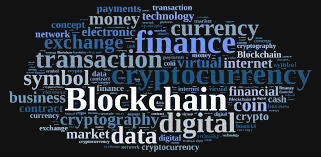





Published on Feb 21, 2020
Request is a decentralized1 network that allows anyone to request a payment (a Request Invoice)for which the recipient can pay in a secure way. All of the information is stored in a decentralized authentic ledger. This results in cheaper, easier, and more secure payments, and it allows for a wide range of automation possibilities. To become the backbone of world trade, Request integrates a general ledger (in the accounting sense of the term), which is: - Universal because it is designed to support 100% of global transactions, regardless of currency, legislation or language.
Request is built to last. - Smart because unlike an existing standard accounting book, Request is at the origin of the exchanges and integrates a computerized trade code, as well as the management of a multitude of payment terms. Today, their absence makes the whole system inefficient and absolutely unready for the digital and IoT (Internet Of Things) revolution that is taking place. Request can be seen as a layer on top of Ethereum2 , which allows requests for payments that satisfy a legal framework.It is also possible to see currencies as tools to complete Request transactions. In this sense, Request is more global than any currency
For example, shopping on Amazon requires payment by credit/debit card, thereby exposing sensitive information. Alternatively, selecting the option to pay via Request, the users data remain protected. Amazon will post a Request on the network, the user’s account will detect it and request a confirmation of payment from the user. This will trigger a transfer at the lowest cost, without exposing the payment information. It becomes possible to avoid unforeseen credit/debit card payments that services charge in a hidden way, because it provides a way to validate payments before they happen. Request empowers people. The advantages of Request, compared to current systems, are:
• Security: Payment information is never shared, there is no risk that someone intercepts and reuses banking information.
• Simplicity: One click to pay, and no manual input error possible.
• Cost: No third-party like Paypal6 , Bitpay7 or Stripe8 , all of whom are providers that charge between 1% and 7% of the amounts sent. Request reduces the cost.
REQ tokens are ERC20 tokens which are necessary to participate in the network, create advanced Requests and reward various parties who will help build the request ecosystem. When using the network, the participants will need to pay a network fee in REQ which will be burned. The fees will be adjusted by the Request Network operators depending on the decreasing supply of REQ and the exchange rate with the different currencies authorized by the network. As an example, a request at the beginning of the system might burned 10 REQ out of the total supply of 1 000 000 000 REQ.
Later, after the system has been used for a while, a Request might burn 0.0001REQ out of a total supply of 100 000 REQ. The network will have a built in system to reward platforms on top of the protocol who decide to charge a REQ fee. In this way we favorize the creation of an entire financial open platform. The costs we expect on the platform are 0.05% to 0.5% of the transaction. These costs will then decrease when the volume of the network increases in order to remain competitive and to avoid incentivizing the development of alternatives. With the global market transiting more than $ 5,000 billion a day, minimal fees will become ample when the platform grows to a larger scale.